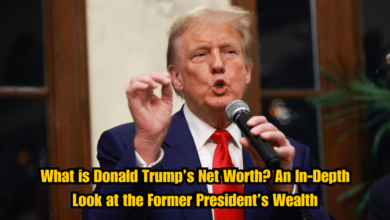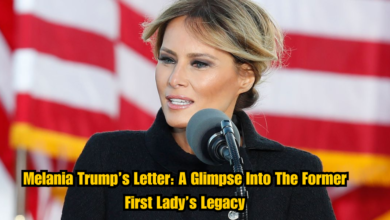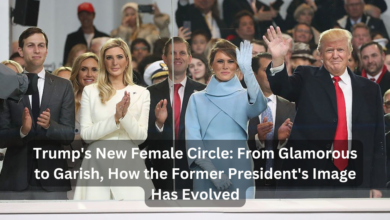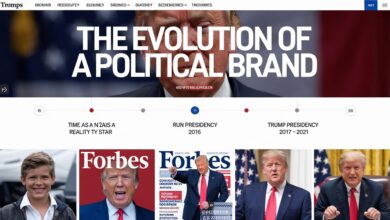Donald Trump’s Influence and Legacy in Charlotte: A Comprehensive Look
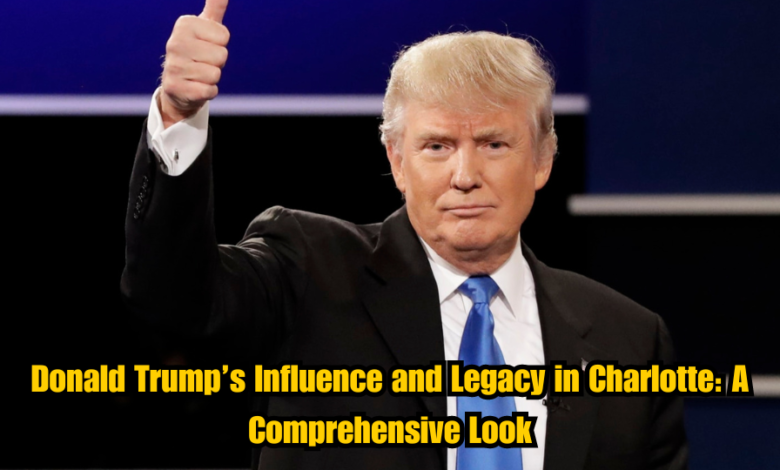
Donald Trump has undeniably left a significant mark on many cities across the United States, and Charlotte, North Carolina, is no exception. As a key battleground state in multiple presidential elections, North Carolina — and specifically Charlotte — has been a critical focus for the Trump campaigns. This article will explore Donald Trump’s influence in Charlotte, touching on his campaign rallies, policies that have affected the city, local reactions, and the lasting political and economic impact.
Donald Trump’s Campaigns in Charlotte: Building a Movement
Throughout both his 2016 and 2020 presidential campaigns, Donald Trump made frequent stops in Charlotte, recognizing the city’s importance in swaying state-wide and national elections. Charlotte, as the largest city in North Carolina, often serves as a barometer for the state’s political climate.
In 2016, Trump’s rallies in Charlotte were large, drawing tens of thousands of supporters. His “Make America Great Again” slogan resonated with many voters in the city, particularly those in suburban and rural areas, who were seeking change after eight years of Democratic leadership under President Barack Obama.
During the 2020 campaign, Trump again focused heavily on Charlotte, holding multiple rallies in the city and nearby areas. His strategy was clear: energize the base in critical swing areas while driving a message of economic prosperity, job creation, and a strong America-first agenda.
The 2020 Republican National Convention in Charlotte
One of the most significant moments linking Donald Trump and Charlotte came in 2020 when the city was selected to host the Republican National Convention (RNC). Although the COVID-19 pandemic disrupted plans, leading to a scaled-back event, the symbolism of the event being hosted in Charlotte was not lost.
Charlotte’s selection as the host city highlighted the political importance of the region. Though the convention didn’t proceed as originally planned, the decision to host it in Charlotte underscored Trump’s focus on the city and its voters. Despite public health concerns and pushback from some local leaders, Trump insisted on moving forward with a portion of the convention, showcasing his resolve and the deep connection his campaign had built with the city.
Trump’s Policies and Their Impact on Charlotte
Economic Policies
One of the pillars of Trump’s administration was his focus on the economy and job creation. Charlotte, being a significant financial hub and home to the headquarters of Bank of America and a major Wells Fargo presence, was particularly interested in Trump’s stance on business regulations and tax policies.
Trump’s Tax Cuts and Jobs Act of 2017 had substantial implications for Charlotte’s corporate sector. The reduction of the corporate tax rate from 35% to 21% provided significant savings for major companies based in the city, allowing for potential reinvestments, bonuses for employees, and expanded operations.
Furthermore, Trump’s emphasis on deregulation was seen as a boost to Charlotte’s banking and finance industries, sectors that often argue that regulatory overreach stifles innovation and growth. However, critics argued that these policies disproportionately benefited corporations and the wealthiest individuals, doing little to address the growing economic inequality in cities like Charlotte.
Trade and Manufacturing
Charlotte’s economy is not only driven by finance but also by manufacturing and trade. Trump’s policies, such as the USMCA (United States-Mexico-Canada Agreement), were intended to replace NAFTA and bring about fairer trade terms for American businesses, including those in North Carolina’s manufacturing sector.
Local businesses in Charlotte, particularly those in textiles and automotive manufacturing, initially welcomed Trump’s promise of better trade deals. However, tariffs on Chinese goods implemented during the trade war with China led to mixed outcomes. While some industries benefited from protectionist measures, others, especially those reliant on imported materials, faced increased costs, affecting supply chains and ultimately consumer prices in the region.
Immigration and Education
Trump’s hardline stance on immigration also played a role in shaping Charlotte’s economic and social landscape. With a growing Latino population in the city, Trump’s policies, particularly those aimed at curbing illegal immigration and restricting pathways for legal immigrants, were met with both support and opposition.
Local business leaders in construction and agriculture—industries that heavily rely on immigrant labor—expressed concerns about labor shortages due to Trump’s policies. Additionally, DACA (Deferred Action for Childhood Arrivals) recipients, many of whom live in Charlotte, faced uncertainty as Trump’s administration sought to end the program.
In contrast, Trump’s education policies, including support for school choice and charter schools, found a receptive audience among some of Charlotte’s educational leaders. However, critics argue that these policies detracted from public school funding, which many students in the city depend on for quality education.
The Political Divide in Charlotte: Trump’s Supporters and Opponents
As is the case in much of America, Donald Trump’s influence in Charlotte has been a story of sharp divides. His rallies in Charlotte were often met with equally large counter-protests, especially during his presidency and re-election campaign.
Support Among Suburban and Rural Communities
Much of Trump’s support in the Charlotte area came from suburban and rural communities surrounding the city. These areas, traditionally more conservative, aligned with Trump’s message of economic nationalism, lower taxes, and pro-business policies. Many supporters praised Trump’s America First agenda, viewing his efforts to bring back manufacturing jobs and his tough stance on trade as vital for the local economy.
Opposition from Urban and Young Voters
In contrast, urban Charlotte—especially its younger population and minority communities—was largely opposed to Trump’s presidency. Black and Latino voters in Charlotte were particularly vocal in their criticism of Trump’s policies on immigration, policing, and healthcare. Many felt that Trump’s rhetoric exacerbated divisions and overlooked the needs of Charlotte’s increasingly diverse population.
The 2020 Black Lives Matter protests that swept across the country also made their mark in Charlotte, where Trump’s response to civil unrest was widely criticized by the city’s progressive leaders and residents. His call for “law and order” and the deployment of federal forces in some cities amplified the already deep divide.
Trump’s Enduring Legacy in Charlotte
As Donald Trump continues to shape the Republican Party, his legacy in Charlotte remains an ongoing discussion. Though he is no longer in office, Trump’s influence persists in the city’s political discourse.
Impact on Local Politics
Trump’s presidency invigorated many local Republican politicians in Charlotte, some of whom have built their careers by aligning closely with Trump’s policies and rhetoric. The growth of the Trump-aligned Republican movement in North Carolina has shifted local political dynamics, influencing state legislature elections and setting the stage for future gubernatorial races.
The lasting effects of Trump’s economic and immigration policies continue to be debated in Charlotte. While some see Trump’s presidency as having provided a much-needed boost to local businesses and industries, others argue that it widened the gap between the city’s wealthy and its working-class residents.
A Divided Future?
As Donald Trump eyes another potential run for the presidency in 2024, Charlotte’s role as a battleground city will once again come into focus. The city’s voters will have to decide whether Trump’s policies have truly benefited the region or whether his presidency has left behind more challenges than solutions.
As the Republican Party continues to evolve in the post-Trump era, Charlotte, with its unique blend of urban progressivism and suburban conservatism, will remain a key focus for political strategists. Whether Trump’s influence will endure or fade in the coming years remains to be seen, but one thing is certain: Charlotte will continue to be a political microcosm of the broader American experience.
For further information on Donald Trump’s impact on local economies, you may want to explore this report on economic growth trends in key U.S. cities or read about the Republican Party’s future strategy in battleground states. Both of these resources offer deeper insights into the topics covered in this article and their implications on Charlotte’s future trajectory.
